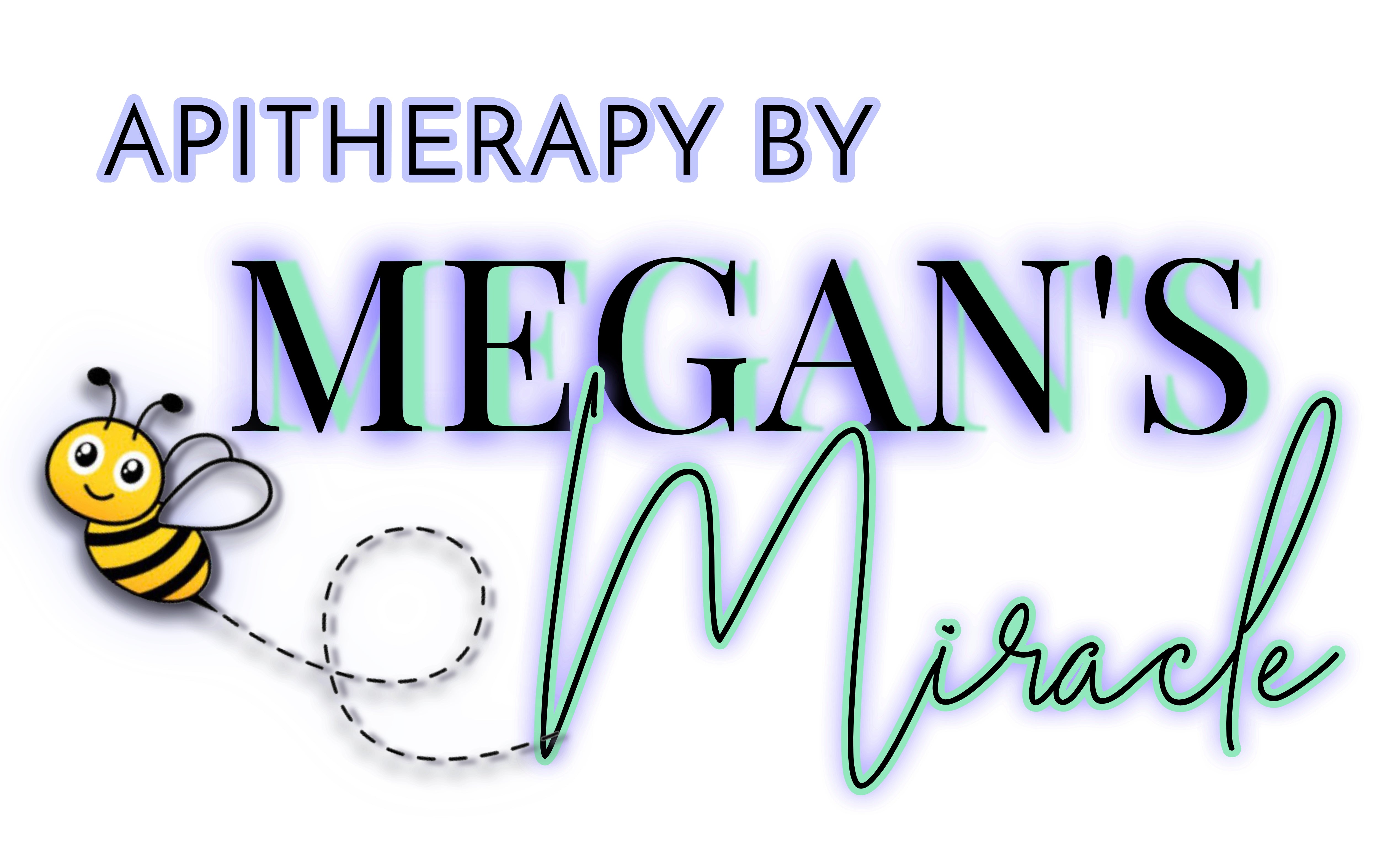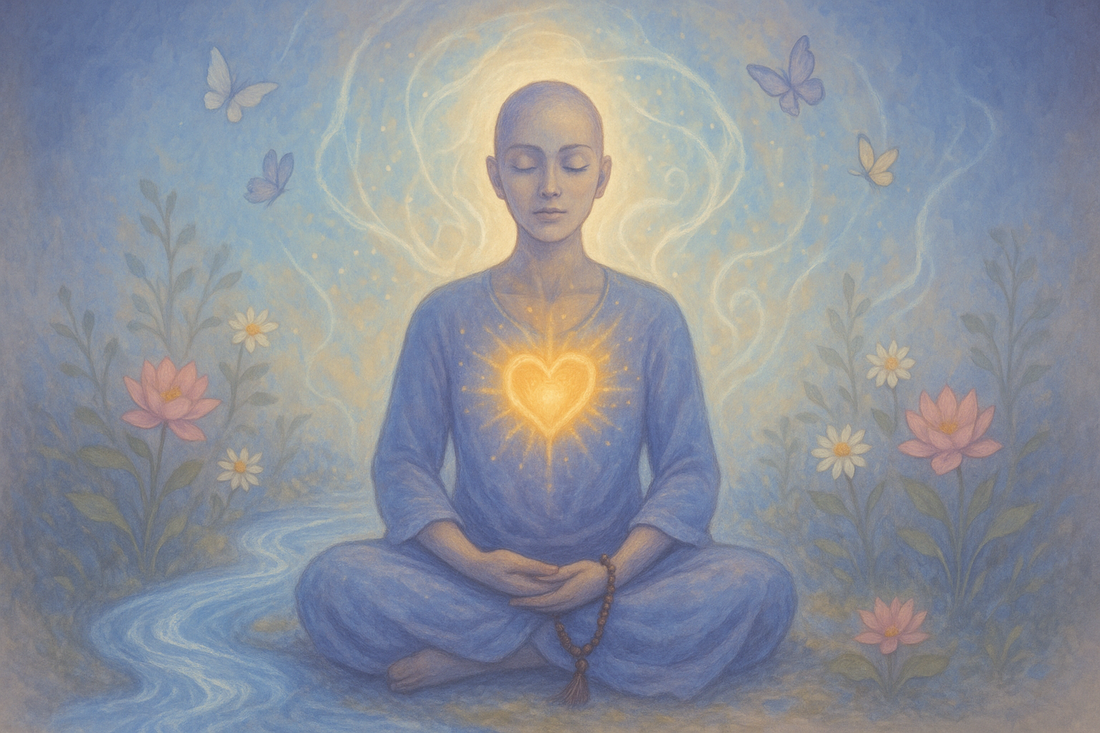When Faith Meets Fatigue: Spirituality’s Complicated Dance With Chronic Illness
To keep the body in good health is a duty, otherwise we shall not be able to keep our mind strong and clear.
- Buddha
Chronic illness doesn’t just invade your body—it targets your soul. It asks relentless, ugly questions: Why me? Did I do something wrong? Is God or Someone punishing me, or ignoring me? How can I even fix THAT!? Even people who never thought much about spirituality can find themselves bargaining with the universe at 3 a.m., whispering endless promises to a sky they’re not sure anyone is listening through.
Spirituality can be a comfort or a weapon. It can steady trembling hands, or—misused—drive wedges between people who already feel alone. This is the complicated dance: to seek meaning without surrendering your dignity.
The Double-Edged Gift of Spiritual Frameworks
Faith traditions and spiritual practices can offer extraordinary comfort. Ritual can tether you when pain unmoors everything else. Lighting a candle, reciting a blessing, or simply pausing for a breath can make chaos feel momentarily ordered.
But spirituality can also become a trap. Well-meaning phrases like “everything happens for a reason” or “just manifest healing” can unintentionally shame people whose bodies don’t cooperate. Chronic illness is not a test you pass or fail—it’s a reality you live.
Beyond Blame: Rejecting Spiritual Gaslighting
There’s a quiet cruelty in suggesting that illness is a punishment, or that if you only prayed harder, you’d recover. Such comments deepen wounds rather than healing them. They also distort the core purpose of spiritual practice: compassion.
Chronic illness already isolates. Spiritual blame isolates further. Healthy faith does not assign moral failure to physical suffering.
The Terrifying Echo of Old Hate
In 2025, I learned how fragile safety can feel. A peer—while “doing research”—unearthed Nazi propaganda and believed it. They repeated it to me as if it were truth: that Jews are the reason for the world’s suffering, that we killed Jesus, and that unless I accept him as savior and pray only to him, I will not get well.
For anyone, such words are devastating. For someone chronically ill, isolated, and already carrying generational trauma, they’re terrifying. Propaganda convinced ordinary people in the past, that Jews were evil, alien even—and millions were murdered for it. To hear its echo today shows how hate survives, disguised as inquiry.
My Roots and My Choice
I didn’t study religion—Judaism or any other—until I was older and chose to. It was never forced on me. My family kept traditions in ways that felt right for us. My mother was raised in Williamsburg, Brooklyn, in a kosher home by second-generation New York Jews who had been here well before the Holocaust. My father was also second generation in New York, carrying the same deep cultural roots and quiet pride. They raised my sister and I to follow traditions, and live with an open mind focusing education on a broader scale rather than on the specifics of religion.
Though our branch was already in the United States, countless relatives were undoubtedly lost in Europe. Their absence hums beneath our holidays and our laughter. That unbroken thread—the one that says we’re still here—is part of why I’m proud of my cultural heritage.
Prayer is not asking. It is a longing of the soul.
- Mahatma Gandhi
Proud, Not Ashamed(lol a sin?)
Here’s the truth that sustains me: I am proud of my culture. Proud of a tradition that has survived exile, persecution, and propaganda. Proud of our music, humor, storytelling, and stubborn insistence on joy. Proud that my people turn mourning into ritual, questions into philosophy, and suffering into action for justice. And you, of your own people can also find similar ways in which your ancestors have survived generations long with their own rich traditions. Or create your own.
When others twist spirituality into blame, I anchor myself in what Judaism actually offers me: resilience, memory, and belonging. My heritage doesn’t curse me—it strengthens me. As yours can strengthen you.
Words That Hold Strength
Three Hebrew phrases remind me who I am and speak to every human spirit, no matter their faith or background:
-
✡ חֲזַק וֶאֱמָץ – Chazak Ve’Ematz (Be strong and courageous.)
-
✡ חֲזַק חֲזַק וְנִתְחַזֵּק – Chazak, Chazak, V’nitchazek (Be strong, be strong, and let us strengthen one another.)
-
✡ גַּם זֶה יַעֲבוֹר – Gam Zeh Ya’avor (This too shall pass.)
These aren’t just words; they’re spiritual muscle memory—encouragement whispered across time and space. When life feels too fragile, I listen for them in the quiet, and feel less alone.
The Vagus Nerve, Ancient Practices, and Spiritual Sound
Modern research shows that vagus nerve stimulation can calm the nervous system, lower inflammation, and improve mood. What’s fascinating is that many ancient religious practices unknowingly tap into this same physiology:
- Humming and Chanting: Monks chanting “Om,” Gregorian choirs resonating in stone cathedrals, or Buddhist mantra recitations all create vibrations that stimulate the vagus nerve through the throat and chest.
- Singing Psalms or Spiritual Songs: Communal singing slows the breath, lengthens exhalation, and activates the parasympathetic system.
- Slow, Rhythmic Breathing in Prayer or Meditation: Traditional prayer cycles across Jewish, Christian, Islamic, Hindu, and other traditions match modern breathwork techniques known to regulate heart rate variability.
- Bowing or Gentle Movement Rituals: Movements like Islamic sujood (prostration) or yoga-based sun salutations engage the body’s sensory nerves, creating grounding feedback similar to somatic therapy.
These practices were never “biohacks” in their original contexts—they were acts of devotion. Yet they reveal how spiritual traditions preserved nervous-system regulation tools long before neuroscience could explain them. And why the rituals are soothing and become necessarily part of the lives who find that comfort. Integrating gentle humming, soft chanting, or mindful breath is a way to participate in something ancient and profoundly human—regardless of faith background.
Finding—or Building—Spiritually Safe Spaces
When spirituality has been weaponized against you, reclaiming it starts with affirming your worth and your roots. Safe spaces do exist—and sometimes you build them yourself:
- Seek communities grounded in compassion. Whether it’s an inclusive synagogue, a multi-faith chronic illness group, or a trusted online circle, choose places that practice curiosity over coercion.
- Set boundaries unapologetically. Saying, “That interpretation harms me,” is self-respect, not division.
- Create your own rituals. Light holiday candles even if you’re alone. Play a melody that stirs memory. These small acts are resistance and nourishment for your soul.
- Remember your identity is a blessing. It connects you to generations who survived, created, laughed, and rebuilt. No matter who you are.
A Thread of Love That Survives Hate
In my darkest times, I sometimes remember my Grandma Yetta. The smell of her chicken soup and baking Rugalah filled their apartment— important scents that felt like safety long before I understood why. She would cup my face in her hands, look into my eyes, and call me “shayna maydele", or beautiful girl in Yiddish. I didn’t know the translation then, but I understood the meaning: love, belonging, and the unspoken promise that I come from people who cherish their present lives, not living for some unknown afterwards. Its literal translation is beautiful girl but the meaning was somehow deeper than beauty on the outside, murmured softly by grandmother, like a prayer.
When confronted by antisemitism, or misunderstood for being ill, and the world feels cruel, that memory reminds me: my culture is not a curse. It’s a lineage of tenderness and incomparable resilience—a thread connecting me to generations who refused to disappear, against every odd, supporting each other like family.
Small Sacred enlightening Practices for Heavy Days
You don’t need perfect health or elaborate rituals to hold onto the sacred:
- Light a candle and breathe.
- Whisper gratitude to YOUR Higher Power, for a small mercy—a nice text, a tail wag, a moment without pain.
- Listen to music that feels like prayer—for me it's any Beastie Boys track! Since 7th grade on they have consistently made me giggle, feel happiness and calm and sing almost every single line to any song. Yes, even the Beastie Boys can connect you spiritually.
- Let your dog’s quiet weight on your lap be a sermon. This I need all the time.
- If you're feeling up to cooking, make something from your childhood that always made the day feel special, any day.
These simple practices say: I’m still here.
Wrestling With Mystery Without Surrendering Agency
It’s okay to be angry—at God, at fate, at the randomness of illness. Anger is engagement, not rejection. Staying open doesn’t mean blind optimism; it means admitting you don’t have all the answers and allowing for mystery without giving up your power to act.
At the same time, it’s dangerous to abandon your logic and reasoning entirely—to hand your health or choices over to faith or practices whose origins or motives you don’t know or understand. Mystery can coexist with critical thinking. Spirituality is richest when it partners with discernment: you can honor tradition, invite wonder, and still ask hard questions about evidence, history, and ethics. True faith doesn’t demand you suspend all reason; it invites you to bring your whole, curious self to the search for meaning.
Community Without Conditions
True community doesn’t demand conversion or perfection. It offers compassion without contracts. Whether it’s a Friday night dinner, a forest trail, or a text thread with friends who “get it,” real spiritual support meets you where you are.
Spaces like Megan’s Miracle Studio extend that spirit through ongoing coaching and an inclusive sense of belonging—welcoming and helping people of any faith or background. It’s a reminder that healing communities thrive not on uniformity but on empathy and shared humanity.
Closing Reflection for the Week
I am a fierce warrior, not in spite of my cultural identity, but because of it—and when all else feels gone, I have that to light the way.
Being a warrior doesn’t only look like charging into battle. Sometimes it’s staying in the fight for your own dignity, when you feel invisible and broken. Sometimes it’s refusing to let hate rewrite history or social shunning steal your story. It’s the quiet act of taking another breath, lighting another candle, or asking one more question when others have just given up.
My heritage carries the memory of people who rebuilt their lives after exile and persecution, who sang even when the world was dark, and who turned wounds into wisdom. That lineage fuels my resilience, maybe too much at times. It whispers that even here—in illness, isolation, and uncertainty—hope is still not just possible, but a responsibility.
Spirituality doesn’t promise easy answers or miraculous cures. I'd be weary of anything that does. But it can hold a fragile light steady when everything else flickers. That light—passed from generational hands to mine—reminds me that survival is sacred, questioning is holy, and that love hopefully can outlast the cruelest of life's situations.
Chazak, Chazak, V’nitchazek. 💕
Author’s Note
I live this reality every day. Lyme and coinfections have taken my health, my daily life, my connections, currently my face — and even my voice at times. But it has not prevented me from becoming a true Warrior. I write this not just for myself, but for every Being that is silenced, dismissed, and feeling erased.
Along with Megan’s Miracle, I continue to fight — for scientific understanding, recognition, for healing, and for hope. Western medicine may deny Morgellons exists, but we know better and so much more.
I see real *monsters* with my own eyes. I’ve felt the ongoing devastation in my own body. Suffered the real loses. I’ve got the real labs as useless *proof*. And it has taken my unexpected, near super-human strength to survive this long.
I know this: the real truth cannot be erased; and neither can we.
Hang in there!
xoxo
— Meredith Finegold
Writer • Health Coach • Advocate • Patient/Warrior
Grandma Yetta and Poppy






